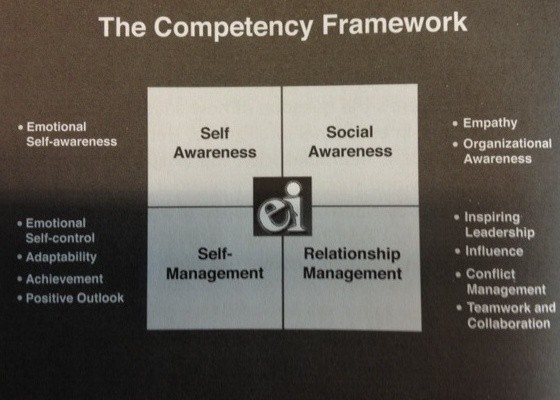“Accept responsibility for your life. Know that it is you who will get you where you want to go, no one else.”
Tag: Personal leadership
Where are we heading? Thoughts on the world of today

I have been travelling quite a lot lately by train and by plane to different European capitals and what I have seen makes me wonder where we are heading. Are machines replacing humans everywhere now? Will it be possible one day that a digital device, a robot or whatever other form of artificial intelligence gives us the warmth and the comfort as well as the balance that we need? I am sceptical I have to say, as most of the people I encounter are craving for a helping hand, a smile, a word of encouragement a well as some empathy and understanding.
Whether you go to supermarkets or airports, machines have replaced people. They scan and sort, analyse and track… people seem to be running past eachother without a word, pushing and rushing to get where they want or have to be. My question here is: do we have to run eternally? Do we need to walk past eachother without a glance? Can it be that somebody falls down and nobody is there to help him or her?
Of course I can only speak for myself but I can tell you that stopping and looking at your life from a different angle is well worth it. You might want to call it mindfulness or anything else but really being there in every single moment, reaching out to people and lending a helping hand does make a difference. A smile, a kind word, an ear even is all that it takes sometimes to make somebody’s day. Everything nowadays is oriented towards efficiency, meeting numbers, saving costs in every domain, be it in the public, non-profit or for profit sector. But I ask you: where are the people that make these systems work? Without them, everything would be empty, meaningless… we should not be hiding, pretending and fearful. We have all it takes in ourselves! It is time to step up and take your lives into your hands.
Being a mindful leader first of all to yourself but also for others is certainly a way into the right direction. Here’s wishing you a wonderful Sunday and a Happy Mother’s day, Jenny
Emotional Intelligence applied to Leadership
Currently I am reading a very interesting book from Daniel Goleman on Leadership and the “Power of Emotional Intelligence”. Dr. Goleman specializes in psychology and brain sciences and thus applies the concepts of mindfulness to leadership, i.e. what it takes to become an outstanding leader. Most interestingly, he found out that it is not the IQ or technical skills that matter at the highest level, but rather the “Emotional Intelligence” (EI) abilities.
Dr. Goleman proposes a so-called “competency-framework” to describe how the fundamentals of EI translate into job success; two of these components are related to dealing with one self. Two others concern the ability to manage other people as well as relationships with others.

From D. Goleman: “Leadership – The power of Emotional Intelligence, Selected writings”. 2011 Northampton MA, page 14.
- Self-Awareness: Having a deep understanding of one’s emotions, strengths, weaknesses, needs and drives. People who are self-aware, are in fact honest with themselves and with others. They know what they can do and what they cannot as well as how their feelings and emotions affect themselves and others around them.
- Self-Management: This actually means that although we all have feelings, impulses and emotions, some of us have found ways to control these and channel them in useful ways, in order to bring out our inner core and creativity (as Personal Leadership would put it).
- Social Awareness: Nowadays, team leaders must be able to sense and understand the viewpoints of everyone around the (virtual) table. Cross-cultural dialogue and understanding is even more important now than before as our worlds become more and more globalized. Being able to put yourself into the shoes of somebody else to understand how he/she feels and at a larger scale, reading the organizational decision networks and currents are absolutely a must.
- Relationship Management: Competent people here work following the assumption that nothing important gets done alone. They are effective in managing relationships, putting relevant networks in place that they can draw upon even if only at a later stage. All other components play into this last one as “no leader is an island” according to Dr. Goleman.
What does this mean for us? Well, it shows again very nicely how being ‘mindful’ and in line with yourself, understanding your own feelings/emotions and being able to interpret them affects others in a positive and effective way. Leading yourself adequately and being aware of your own constraints, culture, worldviews and abilities plus being willing to learn and move forward on the path of “emotional intelligence” will certainly have a major impact on how you will lead others.
Thanks for reading and feel free to contact me for more info/advice, Jenny
Further reading:
- Emotional Intelligence in Business: http://www.psychometric-success.com/emotional-intelligence/emotional-intelligence-in-business.htm
- Forbes: Daniel Goleman and the Power of Emotional Intelligence: http://www.forbes.com/sites/danschawbel/2011/09/15/daniel-goleman-on-leadership-and-the-power-of-emotional-intelligence/
- Daniel Goleman, Ph.D.: http://www.eiconsortium.org/members/goleman.htm
- The Emotional Competence Framework: http://www.businessballs.com/emotionalintelligencecompetencies.pdf
- Emotional Intelligence: http://danielgoleman.info/topics/emotional-intelligence/
Related articles
- Increasing Emotional Intelligence – Daniel Goleman’s Emotional Intelligence Speech Shares Indicators (TrendHunter.com) (trendhunter.com)
- What in the world is Emotional Intelligence? (noecanales.wordpress.com)
Setting up a vision for yourself
 First of all, when thinking about drafting your vision, you have to consider the context in which it will be used. Are you trying to establish a:
First of all, when thinking about drafting your vision, you have to consider the context in which it will be used. Are you trying to establish a:
- Personal Vision
- Professional Vision or
- Holistic Vision, encompassing everything you do and represent/are?
You can have several visions, depending on the different contexts you are looking at. Visions are not set in stone, they have to be revisited from time to time in order to see whether they need adjustment or whether they still feel right for you.
As you start thinking about what matters to you, putting yourself into the context, you might want to embrace the bigger picture, let yourself consider how you move through this world and who you are, i.e. what counts for you. Which qualities are important in your life? Is it empathy, creativity, openness? Try to make a list of these, max. 5 so that there still is meaning for you. Do you feel connected to these qualities? How do they feel like for you?
According to Personal Leadership, a powerful vision should have 5 Ps:
- Personal: it is your vision, write it with an ‘I’. You are the actor!
- Present: it is not a dream nor a wish list for the future. Write it in the present tense and live it NOW.
- Positive: as when working with affirmations, rather write I am, I do etc. than I don’t, I am not… this will have a much more powerful effect.
- Passionate: you need to listen to your body here; how does it feel like when you read out your vision to yourself? How does it feel like when you read it out to somebody else? Can you feel its power? Or do you need to adjust it a little bit?
- Purpose: It is all about being, not about doing. It is about your internal state and the bigger picture of your intentions as well as about your ‘highest and best. Try to imagine the difference your way of being will make to your environment, or even broader, the world.
As the Personal Leadership book summarizes very nicely: “The power in a vision comes from choosing to live in alignment with it. Use your vision as a beacon, a support, a compass. Live your vision in everything you do!”[1]
Please don’t hesitate to contact me if you need help with finding and identifying your vision. It doesn’t matter how you express it actually. You might want to draw it or paint it; maybe you want to record it or write it down. Whatever feels right to you!
Enjoy the rest of your day/evening/night. Thanks for reading, Jenny
[1] B.F. Schaetti, S. J. Ramsey, G.C. Watanabe: “Personal Leadership – Making a World of Difference”, Seattle 2008, page 118.
Related articles
- The power of having a vision in your life (jennyebermann.com)
The power of having a vision in your life

You will most certainly already have come across somebody in your life who told you that maybe you should be writing down your vision or what is sometimes also called “your personal mission statement”. If you are like me, the first time you heard that, you might have thought: “why would I possibly want to do that?”.
The answer to that question is easy (so easy that we might even not think about it):
If your vision is based on your own deep values as it should be, living following its principles will not only motivate and energize you, but as research has shown, make you more persistent, performing, and creative than other peers who don’t have a vision.
Being currently in Vienna and following a “Personal Leadership” Foundations seminar, I will also have to write down my own personal vision tomorrow. Although I have done so in the past, it is certainly time for me now to revise it and renew my commitment to follow it.
Stay with me for this new journey of self-discovery as I will walk you through the different steps to undertake when drafting a mission for yourself and taking ownership of your life! Jenny
“If the doors of perception were cleansed, everything would appear to man as it is – infinite.” William Blake
Seen on www.goodreads.com
Being the artist of your own life

Often, when speaking to friends or acquaintances, I hear that people are unhappy about where they are today. Life seems to have brought them somewhere and the circumstances have then created all sorts of situations that finally led to the person not feeling happy and/or content.
Strangely enough, people always think that they don’t have a choice, as if somebody else was living and composing their lives. In German we have a saying that reads something along the lines of “every man/woman is the architect of his/her own fortune”. I have always deeply believed in this sentence as it bears wisdom and encourages creativity. Unfortunately I have never really been able to advance credible arguments as to why this applies to all of us even if destiny sometimes puts us through terrible ordeals.
Well, I was recently pointed towards an excellent book/method called “Personal Leadership” where mindfulness and creativity form the two founding principles on which different practices are based helping us to become more effective and to stay connected with ourselves even when facing the new and unfamiliar. In this book it says on page 25: “When we accept ourselves as the creators of whatever it is that we are experiencing, we have a choice as to how we will respond to any situation or circumstance presented to us”. On the same page it goes on saying that: “(…) we must accept that our attitudes, our emotions, our thoughts, in fact everything that we experience about another person or a particular situation, arises from within us. What arises is certainly a response to external stimuli, but these aren’t responsible for what arises”.
In short this truly means that we have all the keys to success and happiness in our own hands. We make choices in he face of uncertainty and maybe under pressure but whatever we are living and going through, it is us actually responding to triggers and stimuli. In fact, we cannot “hide” behind the “victim” status. We are always an active part of the play ourselves, if we want it or not.
Let me give you an example: let’s say that somebody is losing his/her job quite unexpectedly. This truly is a sad situation and it certainly has a lot of more or less dramatic consequences. But he or she can choose how to respond to this new and unforeseen situation. Either the person could see him or herself as a victim and stay with these negative emotions; or he/she could interpret the situation as an opportunity, as a challenge and possibility to explore new and creative solutions. Of course there might not be a new job immediately around the corner but the person himself/herself will explore his/her full creative potential to search for alternatives instead of staying in a negative state of mind.
To practice this is obviously not easy in every situation; I still believe that with some training we can change the attitudes we have towards ourselves and our external world in order to realize our full potential and live in line with what we are and what we believe in. I am certainly on that journey myself and am eager to see where it goes…have an excellent weekend, Jenny

